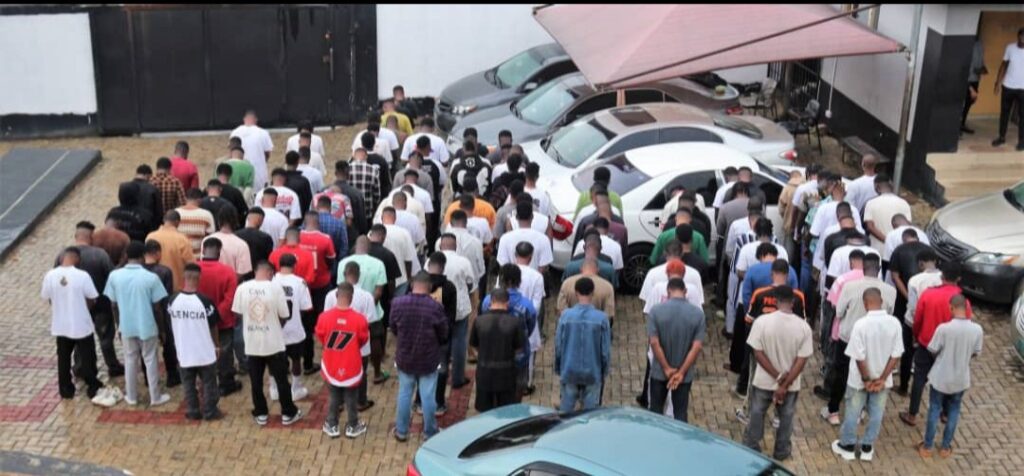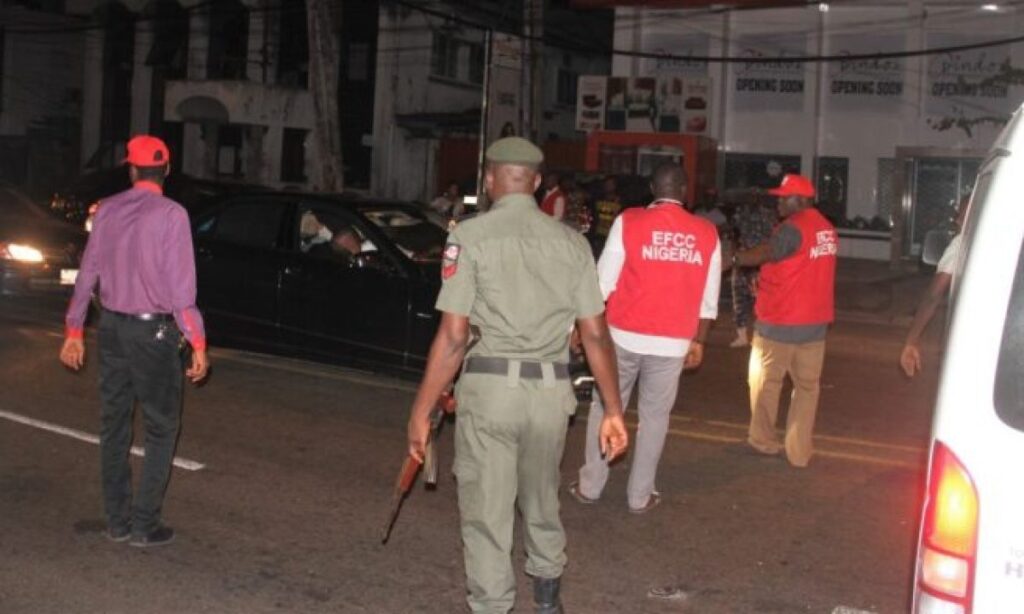The Economic and Financial Crimes Commission (EFCC), Ibadan Zonal Directorate, conducted a sting operation in the early hours of Saturday, June 8, 2024, at two nightclubs in Akure, Ondo State, Nigeria, resulting in the arrest of 127 suspected internet fraudsters. The operation, which targeted a “Yahoo Party” held simultaneously at the Signature and Abah Clubs, was based on credible intelligence suggesting that the event, initially scheduled for June 5, had been moved to evade security and intelligence networks.

According to Dele Oyewale, Head of Media & Publicity for the EFCC, the suspects have provided useful information to investigators, and items recovered from them include 10 exotic cars, phones, laptops, motorcycles, wristwatches, and numerous incriminating documents. The arrested individuals will be charged in court upon the conclusion of investigations.

The raid sparked protests on Monday in Akure, as scores of youths took to the streets, chanting solidarity songs and demanding the unconditional release of those arrested. The protesters, who caused traffic congestion on the popular Oba Adesida Road and the governor’s office road, questioned the legitimacy of the EFCC’s actions, with one protester, Femi Akinremi, asking, “When has it become a crime for citizens to enjoy themselves at nightclubs?”
Akinremi further criticized the EFCC personnel’s actions, stating, “The guys just entered the nightclubs and started arresting our friends. Is it every youth in clubs that is into ‘yahoo yahoo’?” He called on the state and the Federal Government of Nigeria to investigate the matter.

In response to the protests, the EFCC confirmed the arrests but refuted allegations that the suspects were brutalized or dehumanized during the operation. Dele Oyewale, in a statement released on Sunday, defended the commission’s actions and maintained that the arrests were carried out professionally.
The incident has reignited the debate surrounding the EFCC’s methods in combating cybercrime and internet fraud in Nigeria, with some questioning the legality and proportionality of mass arrests in public spaces. As the investigation unfolds, the arrested suspects await their day in court, while the local community grapples with the fallout of the EFCC’s operation and the ensuing protests.
Credit: Punchng.com



